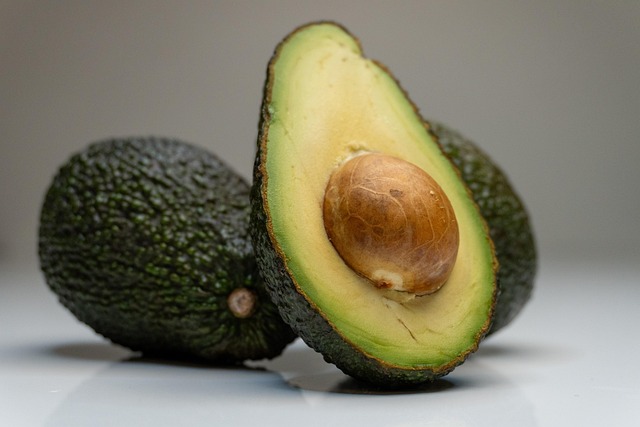Avocados have become a household staple and a global food trend — and for good reason! Avocado consumption has more than quadrupled in the last two decades. From guacamole and salads to desserts and smoothies, this versatile fruit has made its way into every part of the menu.
But how much do you really know about avocados? Are they as healthy as people claim? Where do they come from, and are they environmentally sustainable?
Let’s peel back the layers and dig into the creamy truth about this beloved green fruit.
What is an Avocado?
Believe it or not, avocados are technically berries — large, green-skinned fruits with a single seed inside. They grow on tropical evergreen trees that are part of the Lauraceae family (think: cinnamon and bay leaves).
With a creamy texture and rich, buttery flavor, avocados are unlike any other fruit. While not sweet, their unique consistency and high fat content make them incredibly satisfying and adaptable to both savory and sweet dishes.
The Impressive Health Benefits of Avocados
Avocados are more than just a trendy toast topping. They’re loaded with
-
Fiber (10g per cup!)
-
Potassium (more than a banana!)
-
Folate, which supports mood and brain health
-
Vitamins B6 and C
-
Healthy fats — mostly monounsaturated and polyunsaturated
Here’s a breakdown of 15 science-backed health benefits of avocados –
1. Improved Heart Health
Avocados are rich in heart-healthy fats that can help lower LDL (“bad”) cholesterol and increase HDL (“good”) cholesterol.
2. Cancer-Fighting Properties
Compounds like avocatin B have shown promise in helping fight leukemia cells, and the phytochemicals may protect against several types of cancer.
3. Weight Management
A 2013 study found avocado eaters felt 23% more satisfied and had a 28% lower desire to eat again within 5 hours.
4. Better Nutrient Absorption
Fat-soluble antioxidants like beta-carotene and lycopene are better absorbed when eaten with avocado.
5. Brain Boost
Rich in oleic acid, avocados may improve cognitive function and memory.
6. Mood Support
High levels of monounsaturated fats and folate help maintain brain chemicals like dopamine and serotonin.
7. Eye Protection
Carotenoids like lutein and zeaxanthin can help prevent age-related eye issues.
8. Osteoarthritis Relief
Some compounds in avocado may reduce inflammation and ease joint pain.
9. Liver Protection
Avocados may reduce liver damage caused by toxins or viruses like hepatitis C.
10. Gut-Friendly Fiber
The high fiber content supports digestive health and helps regulate blood sugar.
11. Pregnancy Nutrition
Avocados are a great source of folate, potassium, and healthy fats — all essential for a healthy pregnancy.
12. Lower Depression Risk
Balanced fat intake, including that from avocados, may help improve mental health.
13. Blood Sugar Control
They may help stabilize blood sugar and reduce risk of metabolic syndrome.
14. Fewer Pesticides
Avocados rank among the EWG’s Clean 15, meaning they have minimal pesticide residue.
15. Natural Antibacterial Effects
Avocados can help fight off certain foodborne pathogens like E. coli.
Are There Any Downsides?
Avocados are calorie-dense, so moderation is key — especially if you’re watching your weight.
Other cautions –
-
People with latex allergies may react to avocados.
-
Those prone to migraines might be sensitive to the tyramine found in overripe avocados.
8 Avocado Varieties to Know
There are hundreds of avocado varieties, but here are a few popular and unique types
Hass
The most common variety worldwide — rich, nutty, and high in oil.
Choquette
A large, green Florida avocado with lighter flavor and firmer flesh.
Bacon
Sweeter, more watery, and in season from November to March.
Fuerte
Pear-shaped, smooth-skinned, and considered one of the best tasting.
Tonnage
Low in oil but pleasantly sweet — native to Guatemala.
Daily 11
Can weigh up to 5 lbs! A large, oil-rich cousin of the Hass.
Macarthur
Creamy and nutty, grown in California.
Shepard
Native to Australia, with a green skin that stays green when ripe.
How to Know When an Avocado is Ripe
-
Gently squeeze with all fingers (not your thumb!) — ripe avocados should yield slightly.
-
Peel back the small stem cap — if it’s green underneath, it’s ready to eat.
-
For tough-skinned avocados, use a toothpick test for softness.
Best Way to Peel an Avocado
The antioxidant-rich flesh lies just beneath the skin, so try the “nick and peel” method
-
Wash the fruit.
-
Cut lengthwise and then quarter it.
-
Remove the seed.
-
Peel from the top with your fingers — no spoon required!
Storage Tips
-
Unripe? Keep at room temp.
-
Ripe? Refrigerate for up to 5 days.
-
Cut open? Use lemon juice to reduce browning.
Speed up ripening by storing your avocado with an apple in a paper bag.
5 Creative Ways to Enjoy Avocados (Besides Guacamole!)
-
Basil Avocado Pesto – A creamy, nutrient-packed dip.
-
Baked Avocado Fries – Crispy and oil-free.
-
Vegan Avocado Toast – With red pepper flakes and vegan parmesan.
-
Avocado Quinoa Salad – A filling superfood combo.
-
Avocado Chocolate Mousse – Rich, healthy dessert packed with antioxidants.
Avocados truly live up to the hype. They’re not just a health food — they’re a nutritional powerhouse. Whether you’re boosting your heart health, supporting brain function, or simply enjoying a tasty toast topping, this fruit brings both flavor and function.


